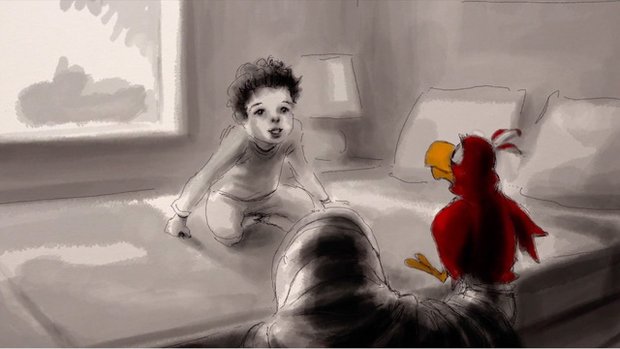 Back to selection
Back to selection
Do You Need to Premiere at a Major Festival to Qualify your Doc for an Oscar? Roger Ross Williams on the Shortlist Process
 Life, Animated
Life, Animated One of the most intriguing aspects of this year’s Savannah Film Festival’s Docs to Watch Roundtable, which I wrote about a couple months back, was the lively back-and-forth that occurred when the subject of the Oscar shortlist came up. From all appearances it seems that a documentarian’s chances of making that Holy Grail cut are “predetermined” — i.e., if your film didn’t debut at one of a narrow number of A-list fests, well, forget about it.
However, Roger Ross Williams, a member of the Documentary Branch of the AMPAS board of governors, took vigorous issue with that assessment. Which intrigued me even more. So Filmmaker decided to follow up with the multitasking, Academy Award-winner a few weeks after the fest, as he was preparing for the UK release of his latest nonfiction artwork Life, Animated. (Which, yes, subsequently made the Oscar shortlist.)
Filmmaker: You participated on the Savannah Film Festival’s Docs to Watch Roundtable, where moderator Scott Feinberg and director Adam Irving lamented the fact that unless a doc has premiered at one of a handful of top tier fests, its chances of making the shortlist for the Academy Award are basically nil. As a member of the Documentary Branch of the AMPAS board of governors, could you shed some light on why this seems to be the case and how this process works?
Williams: A documentary feature does not have to premiere at a major film festival to qualify for an Oscar. Each AMPAS Doc Branch member gets assigned 20% of qualified films to watch. This allows members to see films that have not had high visibility on the festival circuit.
Naturally, films that appear at top festivals get more attention and press. The doc branch consists of working filmmakers and industry professionals, so they see films at festivals or hear about them through industry buzz and press. If a film has not had a premiere at a major festival, it will still be seen by AMPAS members if it has met the qualification requirements. (Those rules can be found on the AMPAS website.)
Filmmaker: How can filmmakers who didn’t premiere at Sundance, Tribeca, etc. increase their chances of making the Oscar shortlist? Is that even possible?
Williams: Make an exceptional film and build an audience for it. If your film is special, chances are programmers, press, industry and distributors will find it.
Filmmaker: As someone who’s won the Academy Award for Best Documentary (Short Subject), how do you feel about that specific shortlisting process? For that category it seems you really do have to win at an AMPAS-handpicked, Oscar-qualifying festival to compete.
Williams: The great thing is that there are many qualifying festivals and programmers who spend their life looking for great work. You can also qualify your short subject documentary other ways — you can find complete rules and requirements on the AMPAS website.
Filmmaker: If it were up to you, what would you change about the shortlisting process and how?
Williams: As governor of the doc branch of AMPAS I stand behind our rules, but we are always looking for ways to improve the system. Our Executive Committee is always looking for ways to keep up with a changing and evolving industry.
Filmmaker: Finally, on a completely different subject (and just because I wish the moderator had delved into this during the Doc Roundtable) your most recent documentary Life, Animated is heavily dependent on Disney footage. What was the backup plan if you couldn’t clear the rights?
Williams: Life, Animated was a very complex film to make. There are three different types of animation, and my editor David Teague and I had to figure out how to weave them together with vérité footage, home movies, interviews, and footage of Owen addressing the audience directly. If we were not able to license the Disney clips we would have had a huge problem because Owen used these films to make sense of the world around him. He still uses moments from classic Disney animated films, and his band of sidekicks from those films, to make his way in the world.
If Owen did not have Disney he would be lost — and so would we. It was a long and complex process to license the clips from Disney, but luckily I have a talented and experienced producer named Julie Goldman who led that effort. It was also unprecedented that we were able to convince Disney to let us animate their characters in Owen’s autobiographical short story “The Land of The Lost Sidekicks.”
